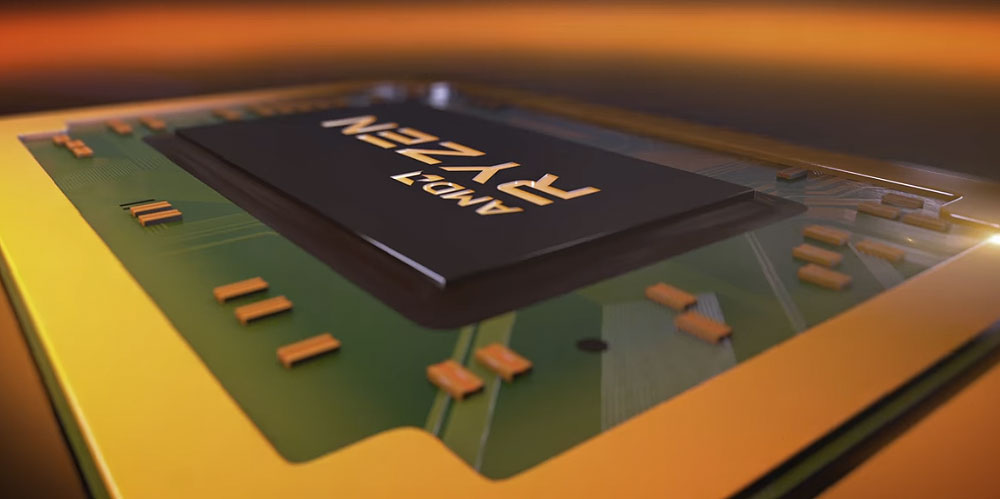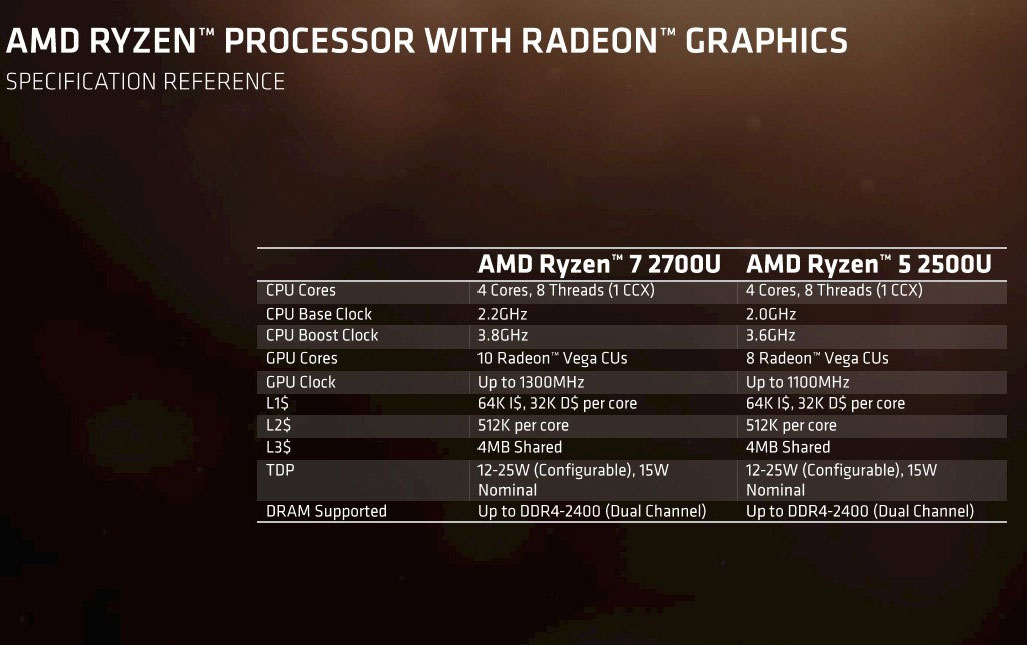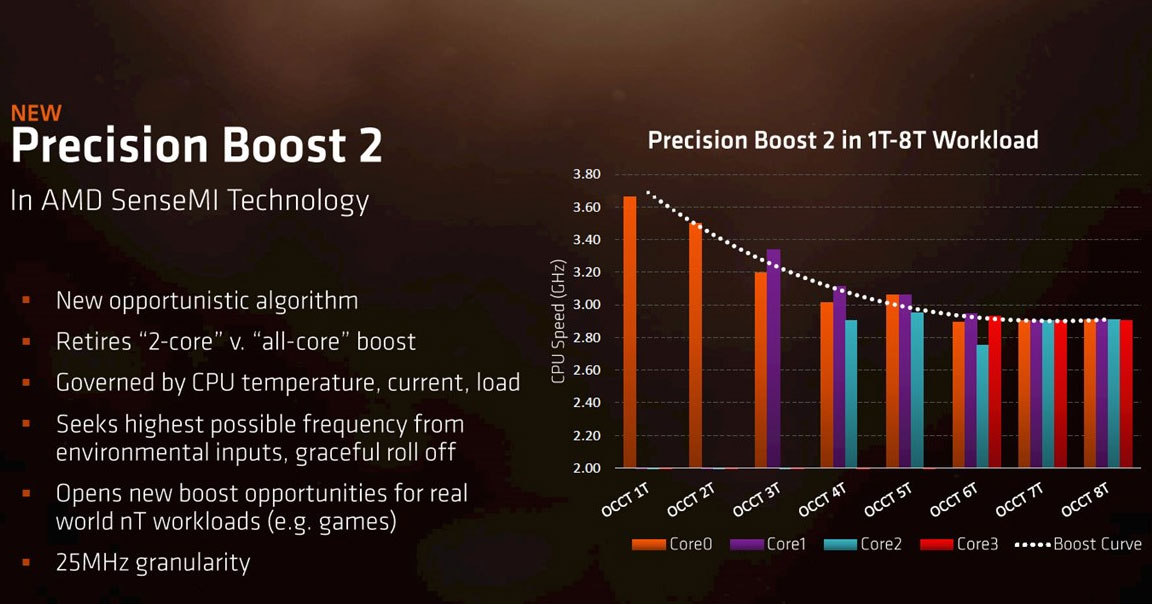AMD’s Ryzen laptop CPUs with Vega are ready for mobile warfare with Intel
Let the battle begin.

AMD decided not to mince words when introducing its Ryzen mobile processors with integrated Vega graphics ("Raven Ridge") today, anointing its first two chips as being the "world's fastest processor[s]" for ultrathin laptops. The fine print reveals AMD is referring to mobile processors for laptops with a 15W TDP, as is the case for its new Ryzen 7 2700U and Ryzen 5 2500U.
"We promised to bring innovation and competition back to every segment of the PC market in 2017, and today marks the fulfillment of that promise for consumer notebooks following our successful roll-out across the consumer, commercial and high-end desktop markets earlier this year," said Jim Anderson, senior vice president and general manager, Computing and Graphics Group, AMD.
Having already launched Ryzen desktop processors into the mainstream, enthusiast, and server markets, and Vega graphics to go up against Nvidia's GeForce 10-series (Pascal), the final step in AMD's performance resurrection was to launch mobile processors that combine its newest CPU and GPU architectures, and that day has finally arrived.
Both the Ryzen 7 2700U and Ryzen 5 2500U are 4-core/8-thread Zen-based CPUs with 512KB of L2 cache per core, and 4MB of shared L3 cache. They both also support dual-channel DDR4 memory, up to 2400MHz.

The higher end Ryzen 7 2700U has a 2.2GHz base clock and 3.8GHz boost clock, along with 10 Radeon RX Vega compute units that can ramp up to 1,300MHz. Meanwhile, the Radeon 5 2700U is slightly slower with a 2GHz base clock and 3.6GHz boost clock, and has two fewer Vega CUs (8 instead of 10), with a max 1,100MHz clock.
Compared to AMD's previous generation mobile processors, the company says the Ryzen 7 2700U offers up three times faster CPU performance, up to 2.3 times faster GPU performance, and consumes up to 58 percent less power.

Though AMD's new mobile processors share DNA with their desktop brethren, the company made some tweaks aimed at mobile computing. The biggest one is Precision Boost 2. This feature consists of an "opportunistic algorithm" to ramp up clockspeeds in 25MHz increments, if temps allow and depending on factors such as the workload.
Keep up to date with the most important stories and the best deals, as picked by the PC Gamer team.
Tying in with that is mobile XFR (mXFR). This is hyper focused on temps and can raise sustained clocks in premium notebooks that have excellent cooling capabilities. In a 5-minute workload, AMD claims mXFR can boost performance by 23 percent.
Several of AMD's hardware partners are getting ready to launch laptops powered by these new mobile processors, including Acer, HP, and Lenovo. Others, including Dell, will debut mobile Ryzen laptops early next year.
Paul has been playing PC games and raking his knuckles on computer hardware since the Commodore 64. He does not have any tattoos, but thinks it would be cool to get one that reads LOAD"*",8,1. In his off time, he rides motorcycles and wrestles alligators (only one of those is true).


